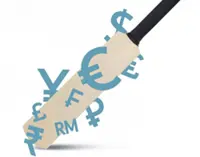DATUK Foong Wei Kuong founded JF Technology Bhd from his kitchen at home in 1999 without an office, employees or customers. It had been a one-man show until he hired his first employee a year or two after setting up an office in 2003.
from his kitchen at home in 1999 without an office, employees or customers. It had been a one-man show until he hired his first employee a year or two after setting up an office in 2003.
“I was the salesperson, technical person, product designer assembler and quality controller. Everything was insufficient — knowledge, customers and personnel.





